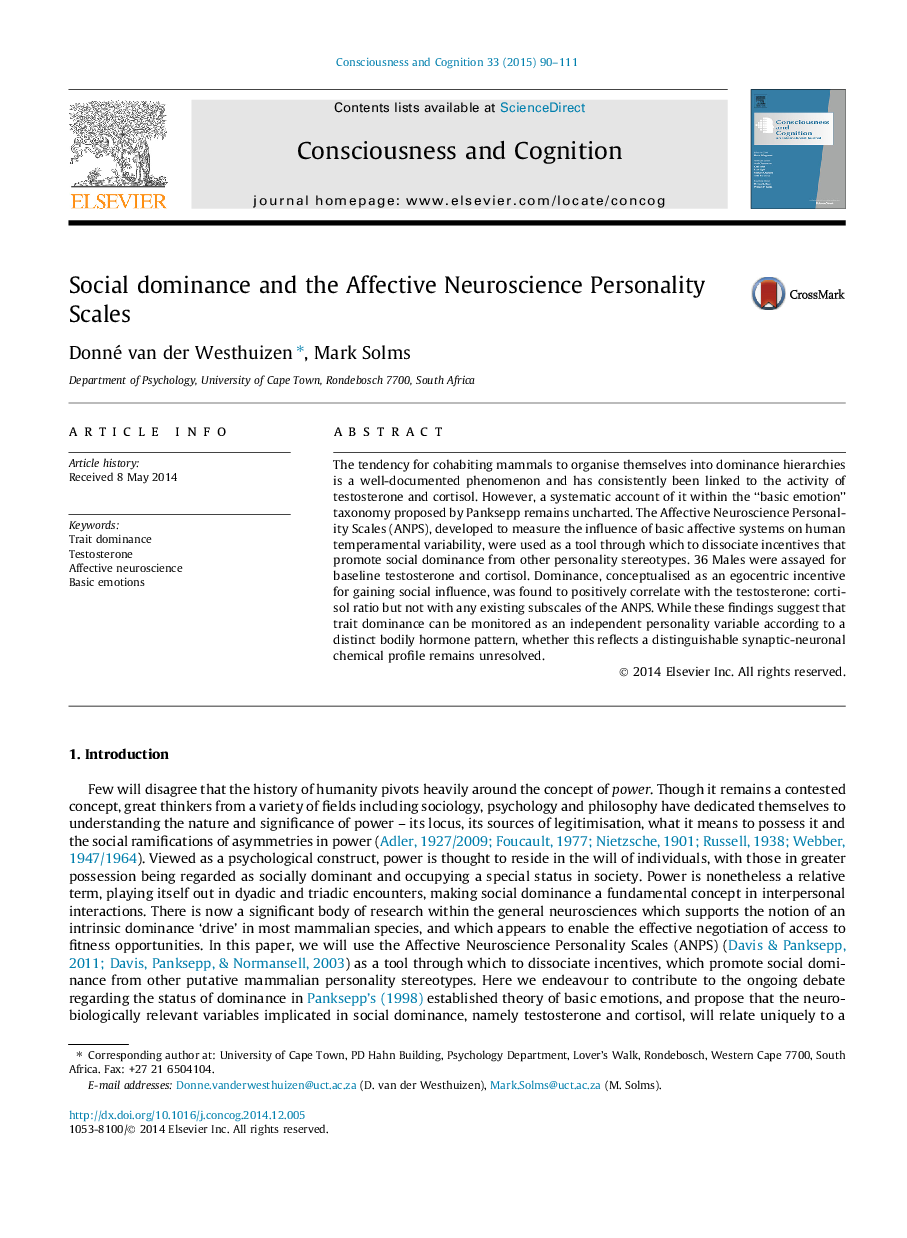| Article ID | Journal | Published Year | Pages | File Type |
|---|---|---|---|---|
| 7289465 | Consciousness and Cognition | 2015 | 22 Pages |
Abstract
The tendency for cohabiting mammals to organise themselves into dominance hierarchies is a well-documented phenomenon and has consistently been linked to the activity of testosterone and cortisol. However, a systematic account of it within the “basic emotion” taxonomy proposed by Panksepp remains uncharted. The Affective Neuroscience Personality Scales (ANPS), developed to measure the influence of basic affective systems on human temperamental variability, were used as a tool through which to dissociate incentives that promote social dominance from other personality stereotypes. 36 Males were assayed for baseline testosterone and cortisol. Dominance, conceptualised as an egocentric incentive for gaining social influence, was found to positively correlate with the testosterone: cortisol ratio but not with any existing subscales of the ANPS. While these findings suggest that trait dominance can be monitored as an independent personality variable according to a distinct bodily hormone pattern, whether this reflects a distinguishable synaptic-neuronal chemical profile remains unresolved.
Related Topics
Life Sciences
Neuroscience
Cognitive Neuroscience
Authors
Donné van der Westhuizen, Mark Solms,
